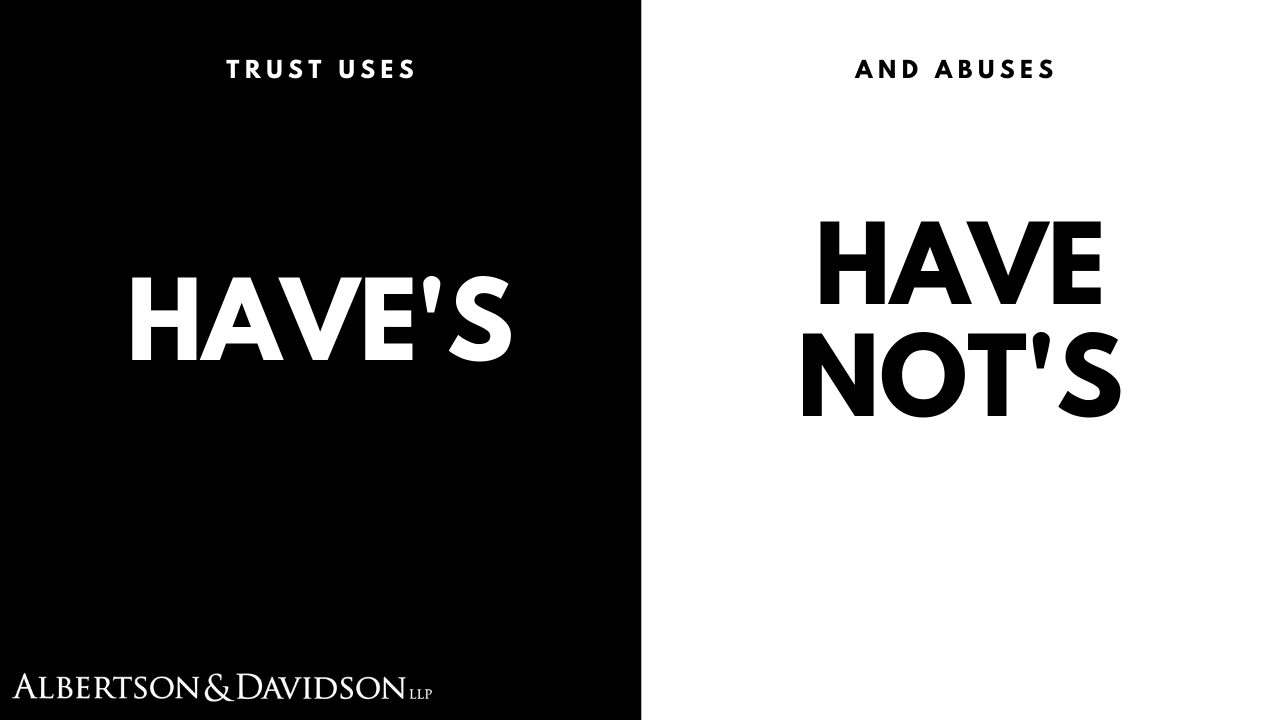
Overall, Trusts are wonderful estate planning devices. They can do a lot of good in planning the successful transition of your estate to the next generation. But Trusts can also be abused in a number of ways. There are two broad categories of people who will be harmed by Trusts: The Have’s and the Have Not’s. The Have’s are those people who are named as beneficiaries in a Trust document, but the Trustee refuses to provide them with their allotted share. The Have Not’s are those people who have been disinherited from a Trust or Will—either through a new Trust being created or a Trust amendment.
In some ways, both Have’s and Have Not’s are dealing with the same problem: they aren’t getting their rightful inheritance. The problem, and the ultimate solution, for Have’s and Have Not’s is quite different, however.
What’s the issue with the trustees?
For example, the main problem facing the Have’s is a bad Trustee. If you are supposed to receive a gift from a Trust, but you are not receiving it, you can bet the problem probably is the Trustee. Maybe the Trustee refuses to make a distribution, refuses to sell an asset to cash out the beneficiaries, refuses to provide financial information, or does all the above. When you have a bad Trustee managing your Trust, you could be in for a world of hurt. Not only can a bad Trustee keep your Trust share from you, but they can also do a tremendous amount of damage to the Trust estate.
Have Not’s, on the other hand, are usually facing a bad person who managed to get the Trust changed before the Settlor died. For example, maybe a bad brother forced mom to sign a Trust amendment naming him as the sole beneficiary. Or a caretaker unduly influences an elder to name the caretaker as the beneficiary of the Trust. Elders who are failing in their health become more and more vulnerable to the manipulations of others. Sometimes it is a child who engages in manipulation, sometimes a friend or neighbor, a financial professional or tax advisor. Bad influencers can come from anywhere.
In this series, we will discuss the problems facing Have’s and Have Not’s and some of the solutions that we use to help each group obtain their rightful inheritance.
